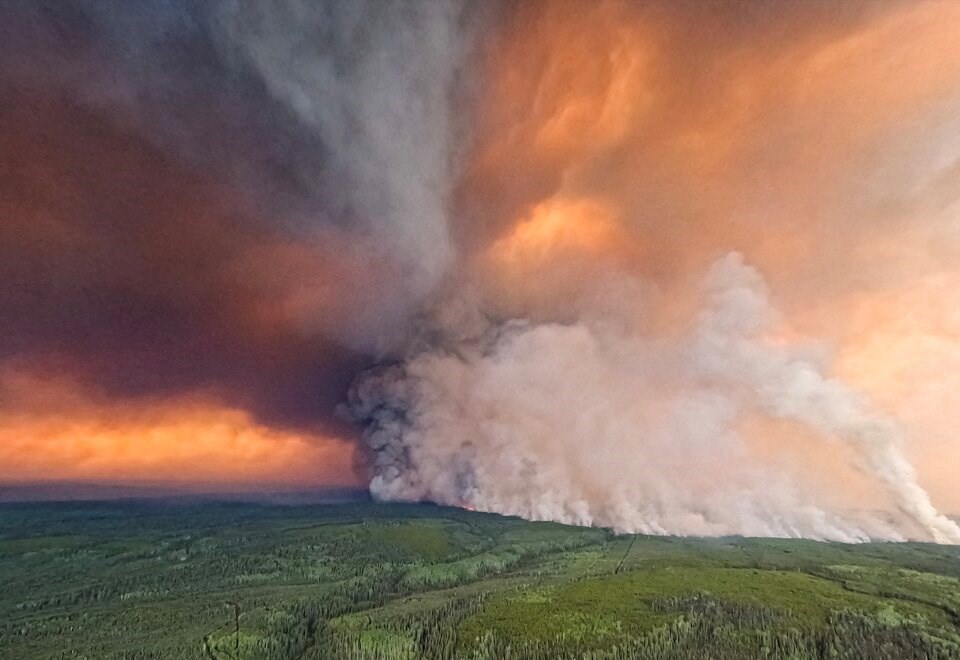Across Canada, British Columbians are the most likely to consider moving to avoid the effects of wildfire and the smoky skies that come with it, a new poll has found.
The survey, released this week from the Angus Reid Institute, found one in five B.C. residents impacted by fire and smoke in the past five years were thinking about moving, a rate higher than any other province.
The poll, which was carried out before powerful fire activity forced evacuations in Yellowknife and across B.C.’s southern Interior this month, found 83 per cent of Canadians believe smoke has impacted their summer. A further 20 per cent said smoke and poor air quality has worsened their health problems.
The numbers come in the midst of Canada’s most destructive wildfire season on record. By Aug. 24, the area burned by wildfires had climbed to nearly 149,000 square kilometres — more than half the area of New Zealand.
By one estimate, that’s led to a doubling of Canada’s overall carbon emissions this year.
Two-thirds say climate change human caused
The pollsters also asked respondents about their views around a changing climate.
Across the country, 89 per cent of Canadians said “climate change is happening and not up for debate.”
That group, however, is divided, with 67 per cent of Canadians believing climate change is a fact and caused by humans — down from a high of 71 per cent in 2021, said the Angus Reid Institute in a summary of its findings.
Another 22 per cent agree climate change is happening but believe it’s caused by natural cycles. Finally, seven per cent — a number that has halved in the past decade — said climate change is “a theory.”
That's compared to a 2021 study from Cornell University that found 99.9 per cent of scientific studies on climate change agree it's human caused.
And when it came to this fire season, 59 per cent agreed the burning of 2023 was directly linked to climate change.
Most think fires will get worse
A majority of Canadians — 84 per cent — agreed 2023 was worse than average, with more than half saying fires will worsen in the coming decades, the survey found.
Differences emerged along gender lines — women of all ages were more likely to say fires and their impact would get worse over the next 10 to 20 years. Those who voted Liberal or NDP also tended to adhere to the idea that wildfires would get worse.
The survey was conducted between Aug. 8 and 11 with a randomized sample of more than 1,600 Canadians. It carries a margin of error of plus or minus two percentage points.





